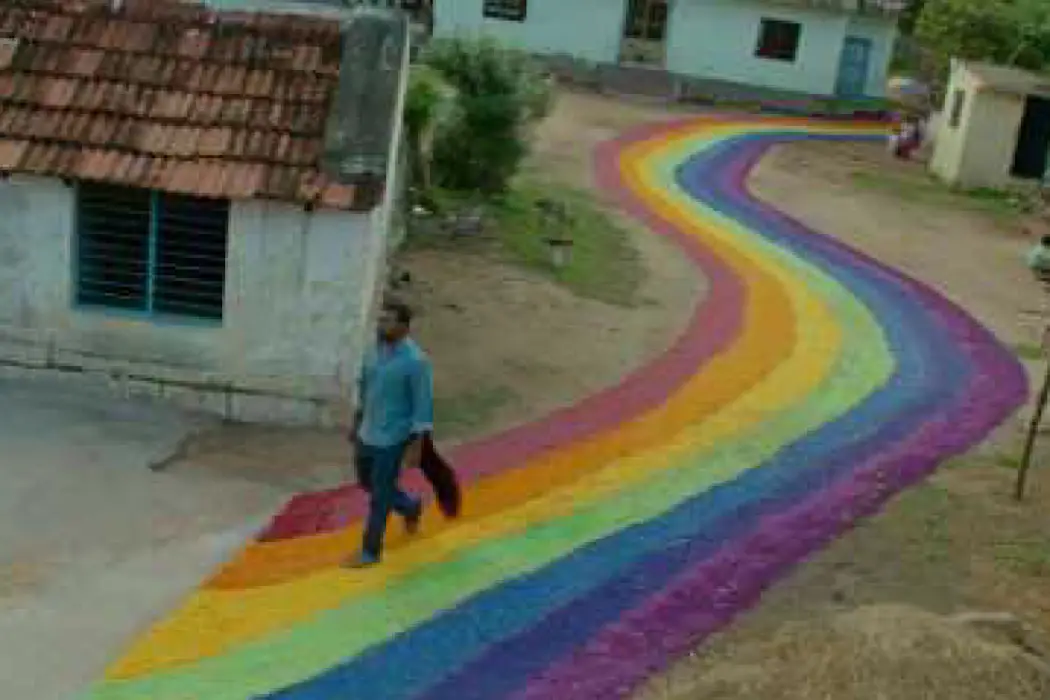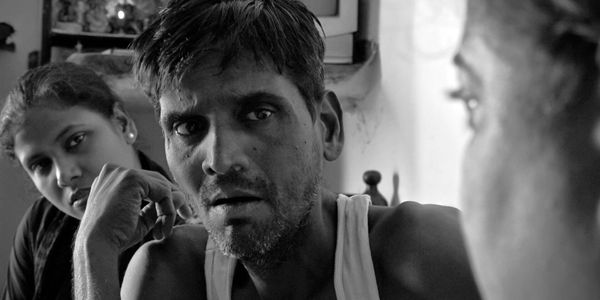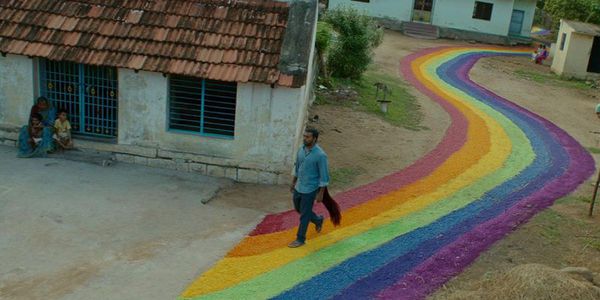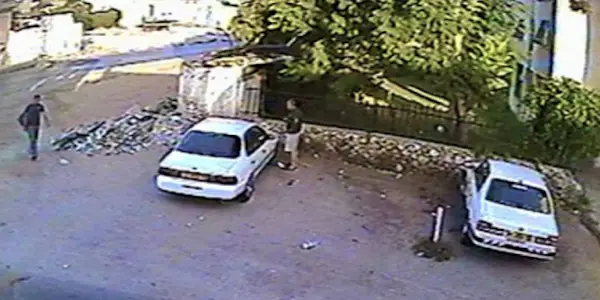Berlin Critics Week 2021 (Woche der Kritik): Two Docs and a Dream

Soham Gadre is a writer/filmmaker in the Washington D.C. area.…
Watch Over Me – dir. Farida Pacha
Rating: (3.5/5)
Death, always a ripe subject for cinema, is something that is incompatible with the way we have built society. Financially, emotionally, and socially, death is considered an inconvenience. It is something that is not at the whims of our need for control and comfort at every turn. Especially in the developed world, death is foreign to us, and thus, requires deep emotional excavation to come to terms with. The subjects of Farida Pacha’s documentary Watch Over Me have one of the most emotionally difficult jobs in the world. Based in India, three women of a palliative care team assist a number of families dealing with one of their members suffering from a terminal illness. The three women, two of whom are grief counselors/nurses and one a doctor, help in the reduction of suffering brought by incurable disease and knowledge of death.

There is always a moral discussion necessary to be had in documentary cinema where the most vulnerable and aching moments of human life and connection are on display for the world to see. A particular sequence where the camera lingers on the face of Meherchand, an elderly man in his last days unable to talk or move. Munni Devi, an elderly woman, is also bedridden and unable to communicate in her final moments and this process of decay is a living document of her. Does she really know people at Berlin Critics Week will all be watching her?
While Pacha of course got permission from the family, there is an unease to these sorts of deeply intrusive elements of the documentary, at least for me. On the other hand, Watch Over Me manages to be an introspective and empathetic portrayal of death, offering the valiant efforts of the trio of palliative care nurses as both a blessing but also brings into question the deeper psychological and economic issues of the ‘death industry’.
One of the subjects, Hanif, contemplates whether it was better for him to be left in the dark about his inevitable death from illness. That whether the fear and constant worry are worth it. He contemplates suicide upon knowing his illness with not get better. Hanif and many like him from poor backgrounds can’t afford the treatment to fully recover from their illnesses. The documentary lists that Hanif’s required medication for recovery is 10,000 rupees per prescription. We also get a glimpse of the bureaucratic and logistic preparations required for death – shuffling papers, signing documents, etc. It’s all very mechanical and coldly pragmatic work for something that has such a tidal wave of an emotional effect. While the heart of the movie lies in the love and warmth of family recovery, it’s soul asks the tough question: Is the society we have built compatible with our frail mortality?
Kuthiraivaal (Horsetail) – dir. Manoj Leonel Jahson & Shyam Sunder
Rating: (3.5/5)
With mainstream cinema and even independent cinema in most of India’s film industries hampered by a need to pave and smooth out any ambiguity in storytelling, it’s very refreshing to see a movie that meanders and winds around itself with zero regards to the viewer. Kuthiraivaal is probably the closest thing to ‘post-modern’ surrealism the Indian mainstream has seen since Anurag Kashyap’s No Smoking (2007) and it’s no surprise that the movie lends itself to pulp and cult references from movies and literature past – Namely Thomas Pynchon and James Hadley Chase. Produced by well-renowned Tamil auteur Pa. Ranjith, this is the debut film of directing duo Manoj Leonel Jahson and Shyam Sunder who has a unique approach to magic realism in the Indian context.

The premise, like in S.S. Rajamouli’s Eega (2012), is a freak hybridization of human and animal forms which beckons a spiritual context considering the mystical elements associated with Hinduism’s animal-heavy mythology. The story centers around the unsubtly named Freud (Kalaiyasaran) who has a very lucid, wacky dream and wakes up with a horse’s tail. He tries to hide it in public but is unable to control it. He eventually seeks the advice of a blind mystic who asks him to recount what exactly was the dream that leads him to wake up with a tail. The rest of the movie is a surrealist romp that jumps between places and settings in Freud’s inner subconscious.
Rather than go completely bizarre with design and plotting, Jahson and Sunder, and the movie’s screenwriter G. Rajesh, structure the dreams inside of familiar domestic and communal spaces – Freud’s living room, a chai stand, a government office – with small hints of weirdness and peculiar details that slowly build up and become exaggerated over time. The design and coloring, coupled with the movie’s stageplay-like artificial settings are very reminiscent of Kyoji Sasaki’s set designs in Mishima: A Life in Four Chapters. The cinematography by Karthik Mutthukumar is a dizzying selection of shots that smoothly tilt and gliding as if in a bubble floating through space.
Freud’s journey through these moments and spaces in time and memory recalls Inherent Vice (2014) in their half-noir-ish suggestion of loose pieces of a puzzle that are meant to be put together, but never quite get there. Kuthiraivaal leaps and dances around a lot of things happening at once but resists coalescing them into a story until the very end. After all, purely post-modernist cinema is still yet to find a comfortable place in the Indian mainstream and even movies that do their best rejecting the traditional forms of narrative, still need to be felt understood at some point. Kuthiraivaal is a nice gateway for the Indian mainstream audience to be nudged outside of their comfort zone, where they may have to come to terms with a movie refusing to solve its own mysteries.
An Unusual Summer – dir. Kamal Aljafari
Rating: 4/5
The question of “what is cinema” comes up a lot nowadays with so many different forms of visual media showing creative capacity. Truthfully, the act of simply making anything via a non-traditional mode of visual art cannot be enough to satisfy the definition. What you have to say with the resources at your disposal and how you say it determines whether it’s cinema or not. Kamal Aljafari’s An Unusual Summer is a good blueprint for how non-traditional visual media can be turned into a cinematic work of art. This movie also redefines the possibilities and artistic impact of the “found footage” film.

Aljafari found a collection of tapes from a security camera his father installed in front of the house in Ramla, Israel. The camera overlooks a street and parking area where Aljafari’s family owned a few cars. One of the cars repeatedly was vandalized by someone throwing rocks and cracking the windshield. The movie, like a lot of found footage cinema, requires patience because it works its way through real-time. Unlike the recent trend of such films, however, this is a true relic, made up of actual people and ongoings, unscripted. But through clever editing and intercut superimpositions of questions, Aljafari puts together a crime caper that keeps one at the edge of the seat.
Through repetition of daily rituals and introductions by Aljafari himself to the quirks and details of the people passing by in front of the camera, we get an immersive experience of the neighborhood and the familial and social dynamics at play. As the film crawls through night sequences, things get hairier, shadows leap and glide from place to place, people walk around suspiciously looking behind them to see if anyone is following. Through this, Aljafari poses the question many times “Was it him?” encouraging his viewers to play the detective themselves and pay attention to details and clothing, and hairstyles.
The movie has a constant shadow of history looming in it, with Ramla being a ghost of a former majority Palestinian-Arab population who were forcibly moved by the Israeli authorities. It’s also home to five of Israel’s federal prisons. The inexplicit nature of the crime at the center of An Unusual Summer is itself a mystery and is slowly revealed through a personal monologue written by Aljafari. The movie’s fuzzy coloring, static, and manual image manipulation, done by an impressive team of collaborators, turns a single shot from a house wall overlooking a parking area into a dynamic microcosm of social politics and communal conversation. It is cinema and documentation at its most rudimentary and detailed, implying that there are stories and histories present in every image waiting to be uncovered.
The three films all screened as part of the Berlin Critics Week (Woche der Kritik) from February 27th to March 7th 2021.
Does content like this matter to you?
Become a Member and support film journalism. Unlock access to all of Film Inquiry`s great articles. Join a community of like-minded readers who are passionate about cinema - get access to our private members Network, give back to independent filmmakers, and more.
Soham Gadre is a writer/filmmaker in the Washington D.C. area. He has written for Hyperallergic, MUBI Notebook, Popula, Vague Visages, and Bustle among others. He also works full-time for an environmental non-profit and is a screener for the Environmental Film Festival. Outside of film, he is a Chicago Bulls fan and frequenter of gastropubs.













